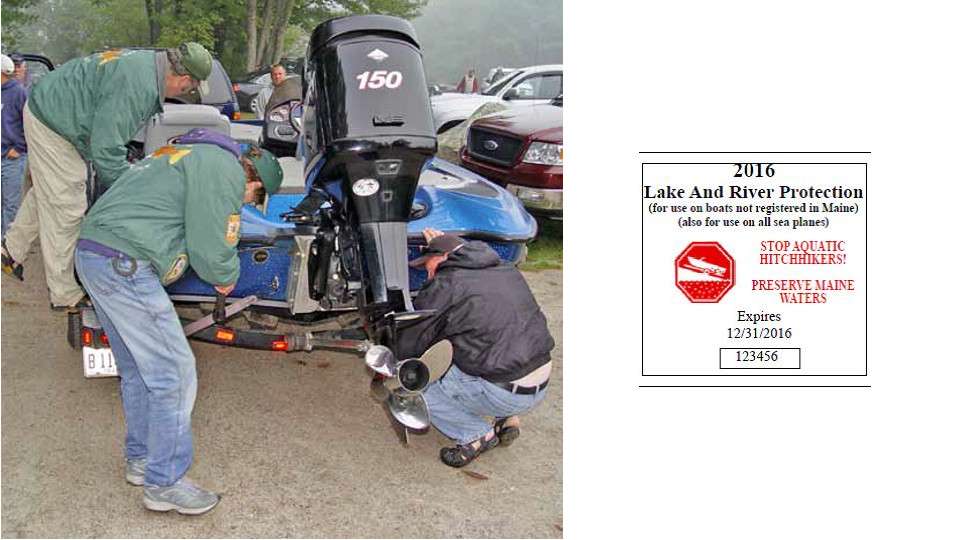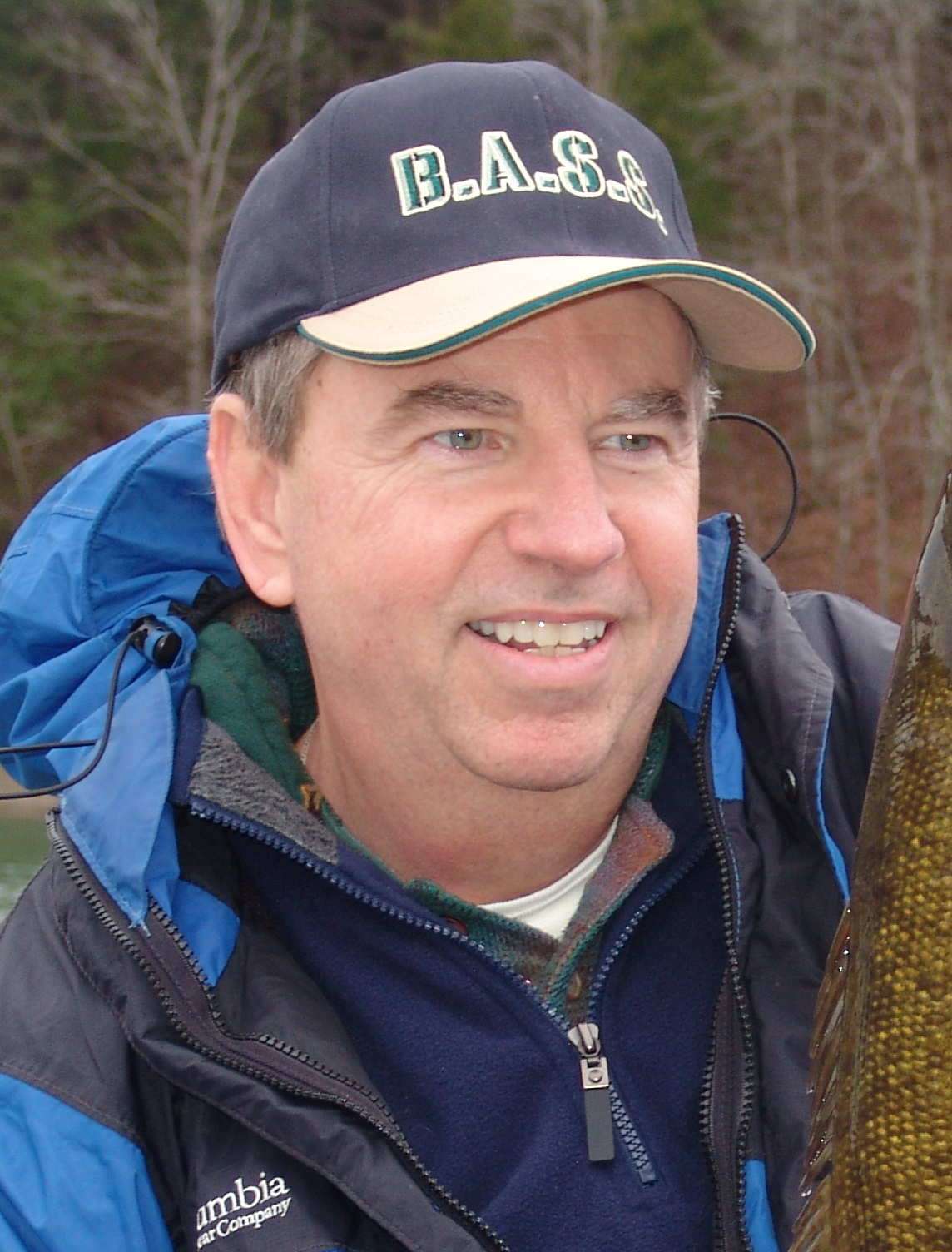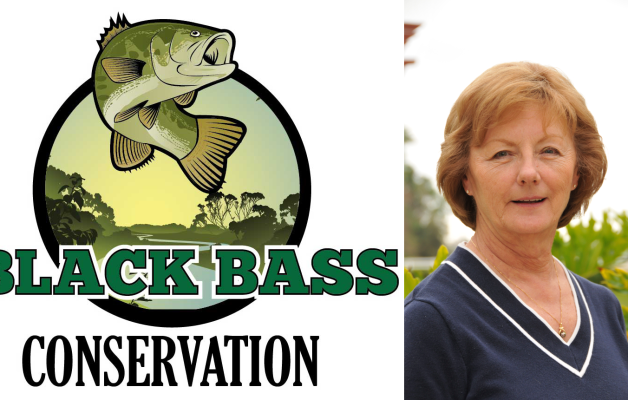
AUGUSTA, Maine – Maine B.A.S.S. Nation (MeBN) members provide a first-line of defense for preventing aquatic nuisance species from spreading in state waters.
“It was our idea to involve bass clubs and trails with the state weed inspections back in 2007,” said state Conservation Director Dustin Barber. “It is mandatory that every club provide a weed inspector for a tournament, even when a state weed inspector is on duty.”
In a state primarily known for its cold-water fishing, MeBN wanted to show state officials and the public “that bass anglers are not the bad guys,” he added.
By the end of each year, all clubs are required to send in their weed inspection forms to the state, Barber said. If a club fails to do so, it is not allowed to pick tournament dates for the next season until after the tournament draw, when complying clubs and trails choose their dates and bodies of water for next season’s tourneys.
Managed by the Maine Department of Environmental Protection (DEP), the Courtesy Boat Inspection Program began in 2001, with funding provided by a $2 mandatory sticker on motorized boats. Assisted by the Lakes Environmental Association, it trains volunteers and organizes inspections for public launch sites.
“The purpose of these voluntary inspections is to reduce the spread of invasive aquatic plants by boats, trailers and associated equipment to Maine waters,” DEP said. “Trained courtesy boat inspectors discuss with boaters the risk posed by invasive aquatic plants, show boaters how to inspect and remove vegetation from boating and fishing equipment and urge boaters to inspect before and after every launch.”
Annually, MeBN members inspect at least 500 boats, said Barber, adding that they record pertinent information, including boat registration and last body of water a craft was on prior to inspection, which is forwarded to DEP.
“If a boat is found to have aquatic plants on it, the boater is asked to remove them,” he added.
“If the boater does not comply, he or she is reported to Maine Inland Fisheries and Wildlife. I have seen boats being pulled out of the water with plants stuck either to the hull or motor, and I’ve never seen or heard of a boater refusing to clean plants from his boat or trailer, so this program does help a lot to stop the spread of invasives.”
It also does much to educate. Instead of quietly checking out a boat and trailer, inspectors explain to anglers the importance of adopting this practice on their own.
“Each inspection also is an opportunity to create a change in boater behavior, so that he or she automatically conducts an inspection without relying on an inspector,” said DEP in a handbook that is gives to inspectors. “It’s also a chance to educate the boater about why inspections are so important.”
They are important because they help prevent the spread of variable leaf and Eurasian water milfoil, hydrilla, water chestnut and Brazilian elodea.
“These plants are so vigorous and propagate so fast that they can crowd out native plants, affect fish populations and make swimming and boating difficult, if not impossible,” DEP said.
“When that happens, costly control measures are needed. Many new infestations occur in shallow waters near public boat launching facilities, so it’s obvious invasive plants move from lake to lake on the boats and equipment of unsuspecting boaters.”





